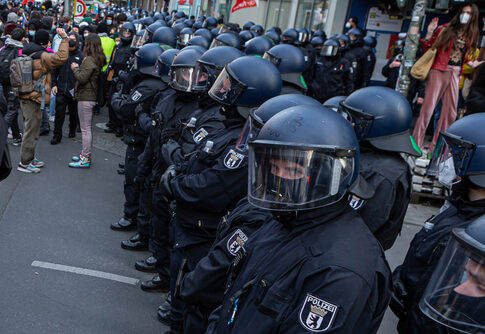In a bold move to distance itself from extremist elements, the Alternative for Germany (AfD) has expelled members linked with a far-right separatist group. The police reportedly made 8 arrests and found illegal weaponry. Can the AfD’s recent step overshadow recent controversies?
Controversial Expulsions Amid Rising Tensions
The far-right Alternative for Germany (AfD) is expelling three members tied to the extremist Saxonian Separatists. This decision follows a police raid leading to eight arrests and the discovery of weapons and military equipment. The group, classified as a domestic terrorist organization, had plans to establish a neo-Nazi state in Germany’s east. This action is part of a campaign to distance the AfD from extremist ties.
The expulsions were seen as an attempt by AfD leaders Alice Weidel and Tino Chrupalla to reiterate their commitment to democracy. The leaders emphasized their rejection of neo-Nazi affiliations, aiming to reassure the public of their dedication to the democratic order.
Germany’s far-right AfD party has lost another legal battle aimed at removing its status as a "suspected extremist" organization. The ruling allows the domestic intelligence service to surveil and investigate its members. Here’s what it means: pic.twitter.com/tKJoVBYaBY
— DW News (@dwnews) May 13, 2024
Political Ramifications and Public Perception
Police raids uncovered unregistered munitions, feeding into suspicions about the AfD’s connections with extremist factions. Amidst these revelations, the party’s electoral victories in regions like Thuringia add complexity to its public image. These wins highlight the significant support the party enjoys, despite controversies surrounding it. Nevertheless, AfD branches in Thuringia and Saxony have been labeled as extremist by German security services.
Furthermore, the party’s leader in Saxony, Joerg Urban, affirmed the anti-violence stance, stating the party “rejects any form of violence in political debate.” The AfD’s public statements are part of a broader strategy to combat the allegations of extremism that have haunted them.
A German far-right party is projected to win in regional elections for the first time since 1945, exit polls show https://t.co/ydtdPV95A4
— CNN (@CNN) September 1, 2024
Looking Forward: AfD’s Path to Legitimacy
As the AfD navigates the aftermath of these expulsions, they find themselves at a crossroads. The need to maintain momentum in regions like eastern Germany while dispelling fears of extremism requires a delicate balancing act. Ensuring their place in the political landscape necessitates a consistent rejection of neo-Nazi associations and a transparent embrace of national and democratic values.
The efforts to position themselves as committed to ethical governance are ongoing. It remains to be seen whether such initiatives are sufficient to reshape public and political spheres’ perceptions and placements.


